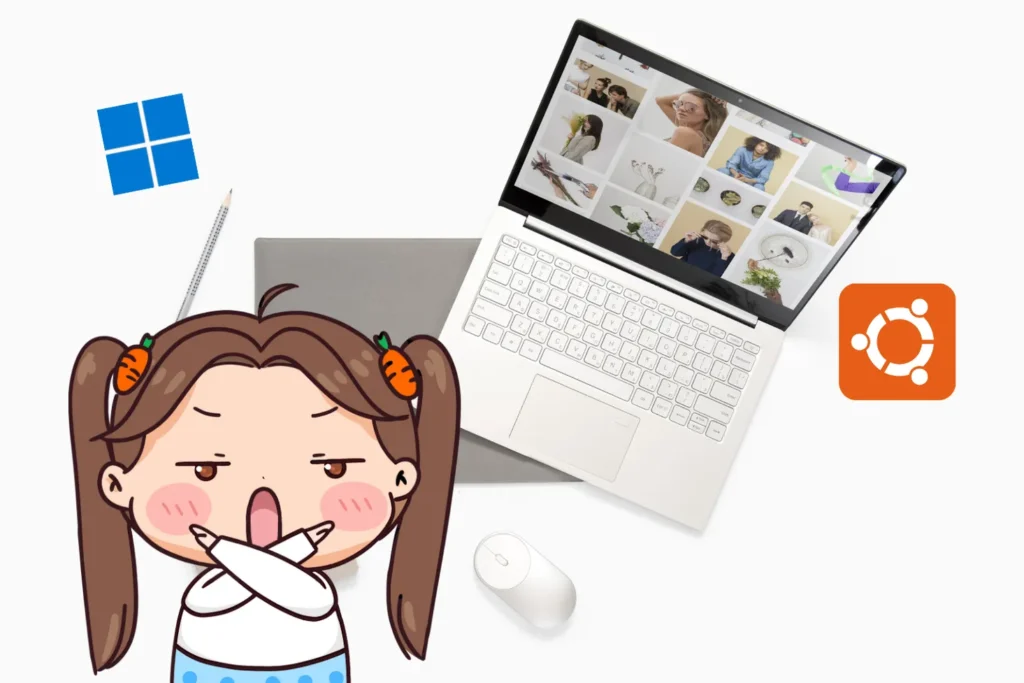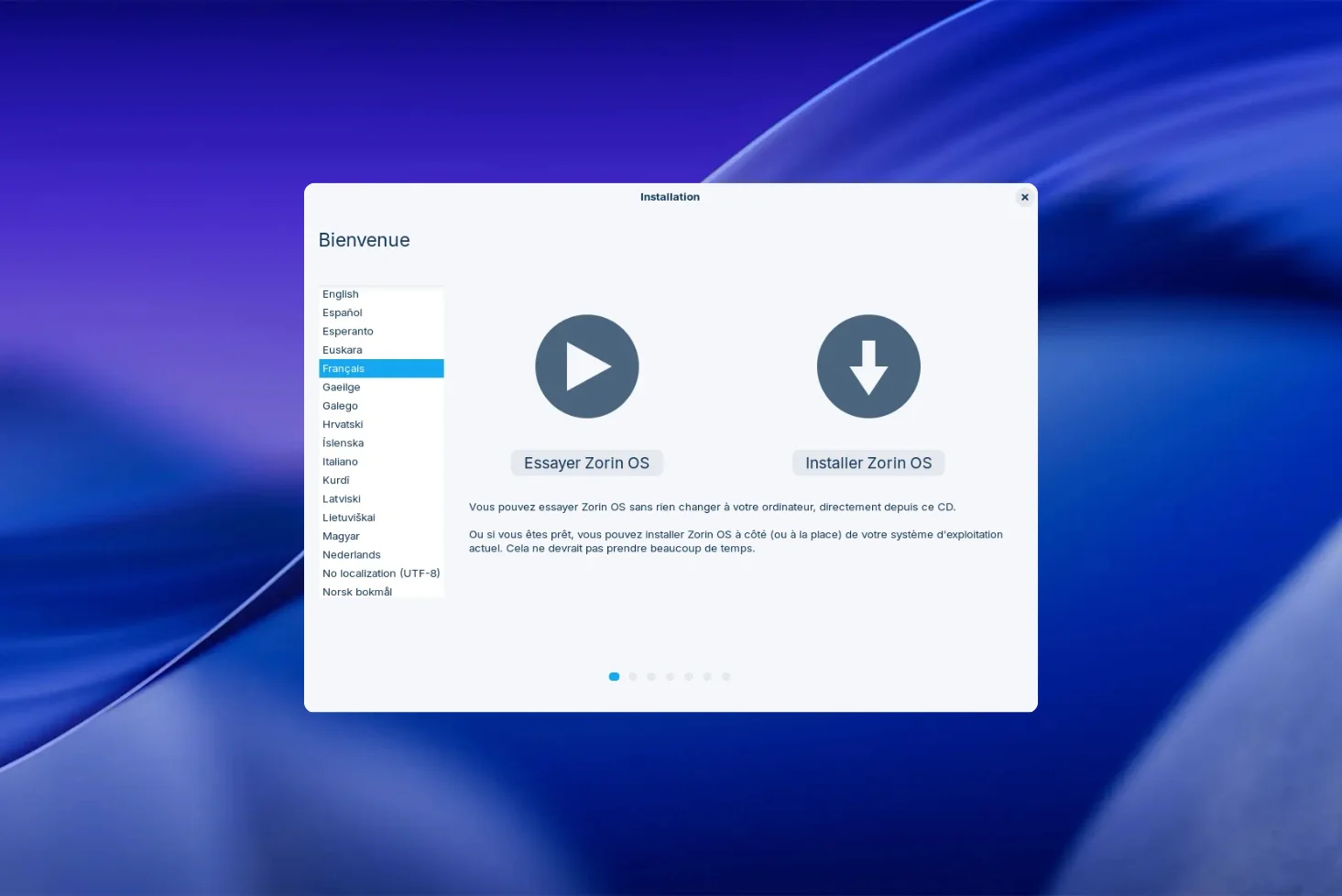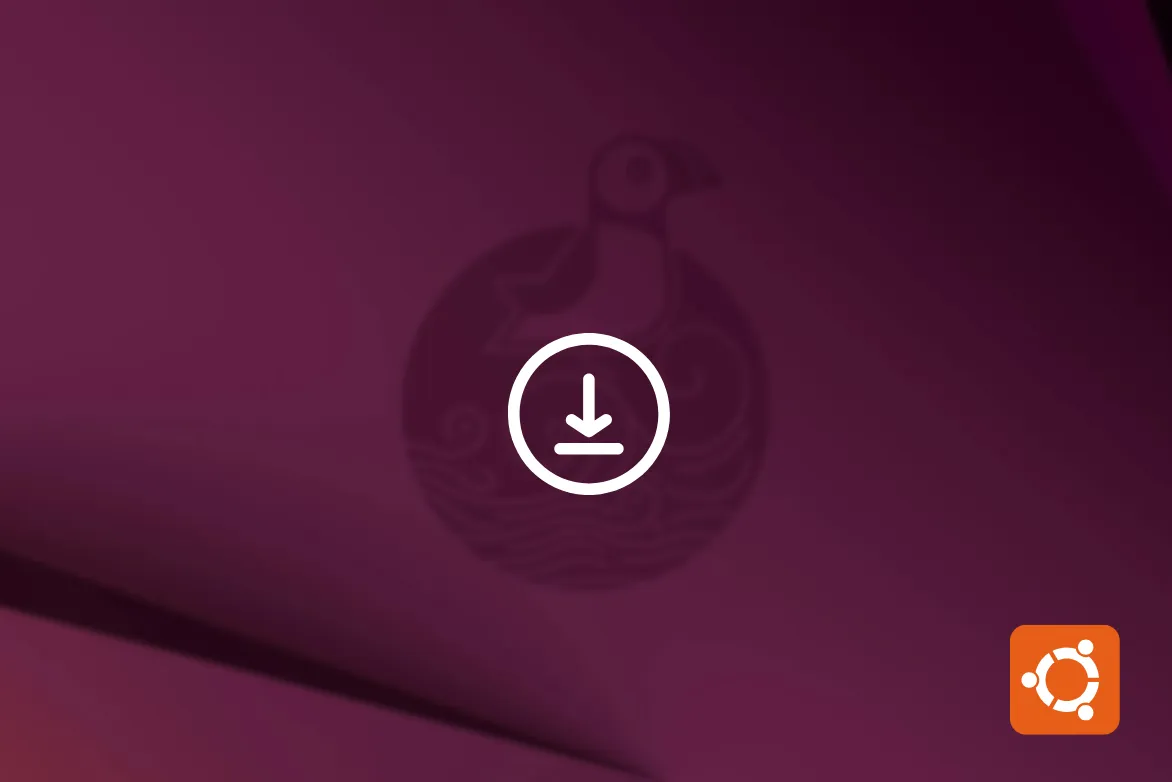Migrating to Linux may seem daunting, but the reality is quite different. Today, some distributions are designed to ease the transition for Windows users, with familiar interfaces, pre-installed software and proven stability. Whether you’re running a new PC or an older one, there’s a version of Linux that’s just right for you.
The best linux distributions to replace Windows 10 in 2026
- Zorin OS Core: the best Linux alternative to Windows 10
- Kubuntu: the lightweight alternative to Windows 10
- Linux Mint Cinnamon: a familiar Windows desktop
- Ubuntu: The operating system that can replace Windows
- Ubuntu: A free OS with all the tools for working, browsing and more
- Switch to Ubuntu without changing your work habits
Zorin OS Core: the best Linux alternative to Windows 10
Zorin OS Core is a Linux distribution based on Ubuntu, specially designed to offer a Windows-like experience and ease the transition for users. Its graphical interface, inspired by Windows 10 and 11, incorporates a Start menu, taskbar and familiar ergonomics to reassure those leaving the Microsoft ecosystem. The free Core version includes all the essential tools: web browser, LibreOffice office suite, multimedia applications and system utilities.
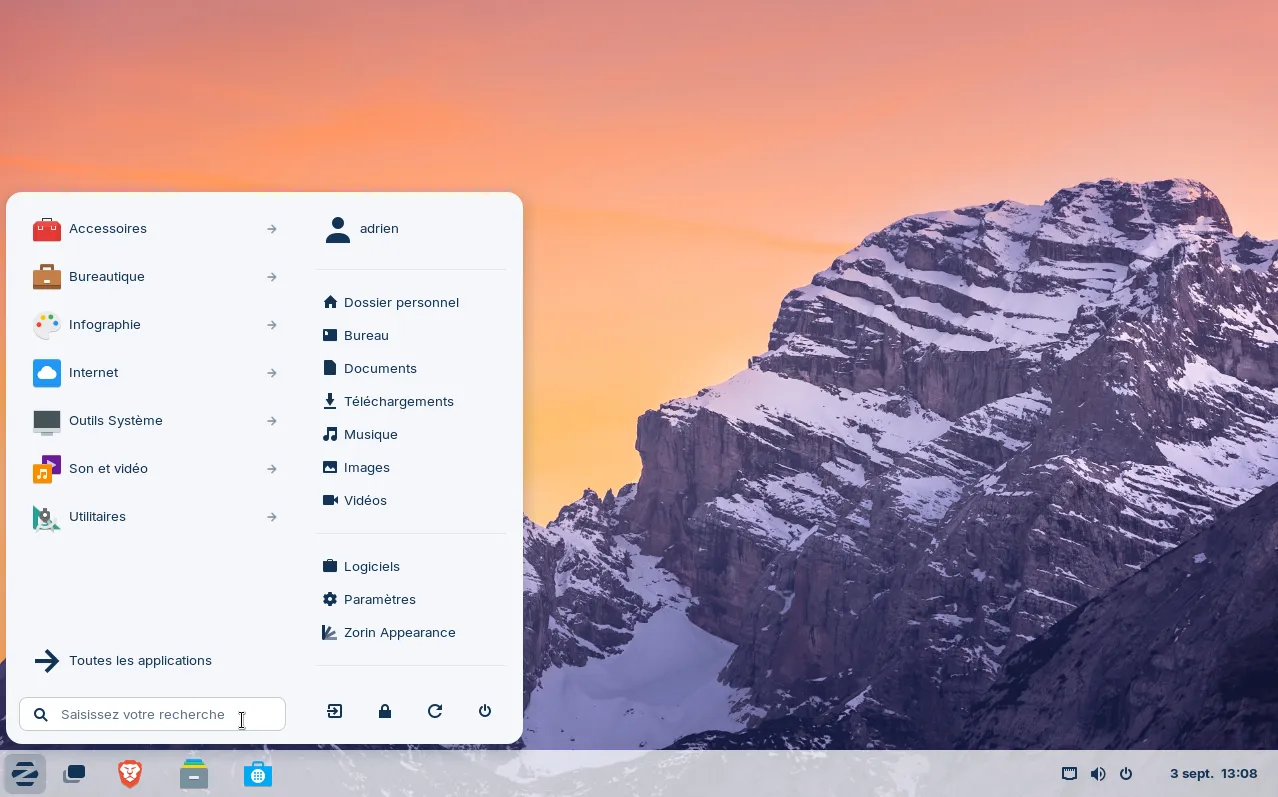
Thanks to its optimization, Zorin OS Core runs smoothly on recent PCs and older machines alike, while guaranteeing stability and security via Ubuntu updates. It benefits from an active community and clear documentation, making it an excellent choice for getting started with Linux without losing your bearings. Accessible, modern and elegant, Zorin OS Core is one of the most convincing alternatives for replacing Windows 10 in 2025.
Minimum system requirements for Zorin OS
- Processor: Dual-core 1 GHz (64-bit)
- RAM memory: 2 GB
- Storage: 25 GB free on disk
Recommended configuration for Zorin OS
- Processor: Latest quad-core
- RAM memory: 8 GB for optimum comfort
- Storage: 100 GB or more on SSD
Discover also the best Linux distributions for old PCs.
Kubuntu: the lightweight alternative to Windows 10
Kubuntu is an official Ubuntu variant that uses the KDE Plasma desktop environment, renowned for its lightness, stability and close resemblance to Windows. Thanks to its modern, customizable interface, it’s an ideal alternative for users coming from Windows 10, with easy access to popular software (Firefox, LibreOffice, multimedia tools) and broad hardware compatibility.
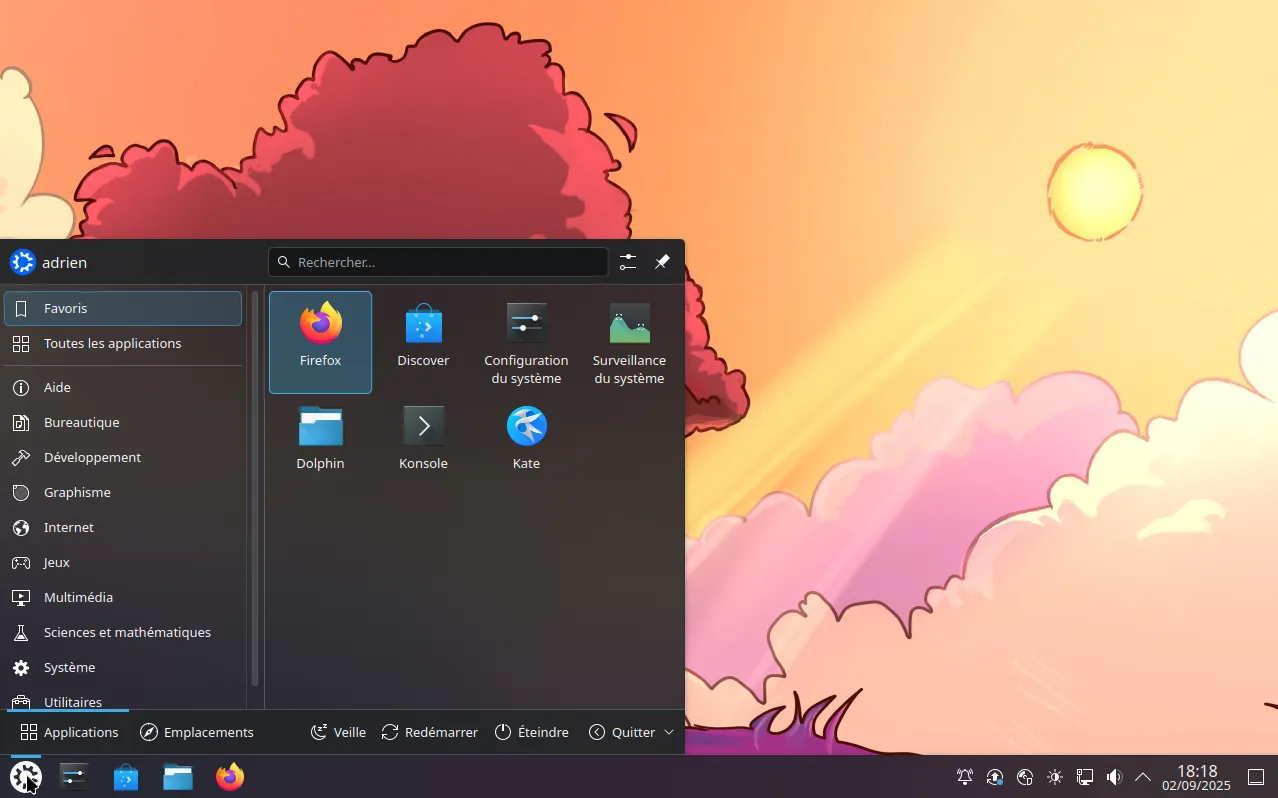
Updated regularly and available in LTS (long-term support) versions, Kubuntu combines the reliability of Ubuntu with the power of KDE. Suitable for beginners and advanced users alike, Kubuntu’s versatility makes it ideal for both recent PCs and older machines, enabling a smooth transition to the Linux world.
Minimum system requirements for Kubuntu
- Processor: Dual-core 2 GHz
- RAM memory: 2 GB
- Storage: 10 GB free on disk
Recommended configuration for Kubuntu
- Processor: Quad-core 2.5 GHz or more
- RAM memory: 8 GB
- Storage: 50 GB or more (SSD strongly recommended)
Linux Mint Cinnamon: a familiar Windows desktop
Linux Mint is one of the most popular Linux distributions for users wishing to leave Windows behind without difficulty. Based on Ubuntu, it stands out for its Cinnamon desktop environment, designed to offer a simple, familiar interface, similar to the Windows start menu. Its stability, ergonomics and pre-installed essential software (web browser, LibreOffice office suite, multimedia tools) make it a turnkey solution for a smooth transition.
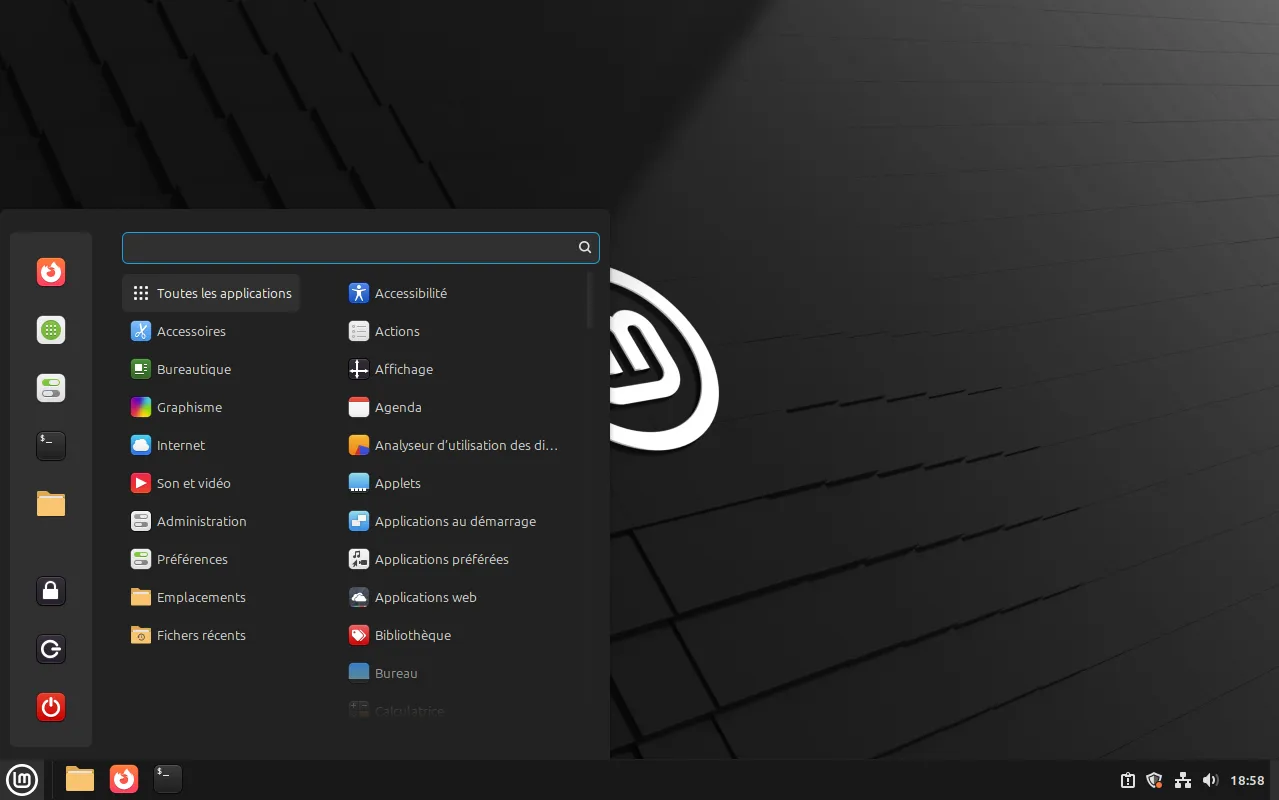
In addition to its user-friendliness, Linux Mint focuses on lightness and performance, enabling it to breathe new life into older computers while remaining perfectly suited to modern PCs. Its active community provides abundant documentation, support forums and regular LTS release tracking to ensure a reliable environment over the long term. For many, Mint represents the best compromise between simplicity, power and familiarity, making it a prime alternative to Windows.
Minimum system requirements for Linux Mint
- Processor: 64-bit, at least 2 GHz
- RAM memory: 2 GB
- Storage: 20 GB free
Recommended configuration for Linux Mint
- Processor: Modern quad-core
- RAM memory: 8 GB for optimum comfort
- Storage: 100 GB on SSD
Ubuntu: The operating system that can replace Windows
Ubuntu is an open source operating system based on Linux, designed to be simple, secure and accessible to everyone. It offers a complete alternative to Windows or macOS, with an intuitive interface, regular updates and a wide range of integrated or one-click free software.
Used on personal computers, servers, supercomputers and in the cloud, once installed Ubuntu seduces with its stability, lightness and respect for privacy. It is based on a robust architecture and benefits from a vast community that provides support, documentation and constant contributions.
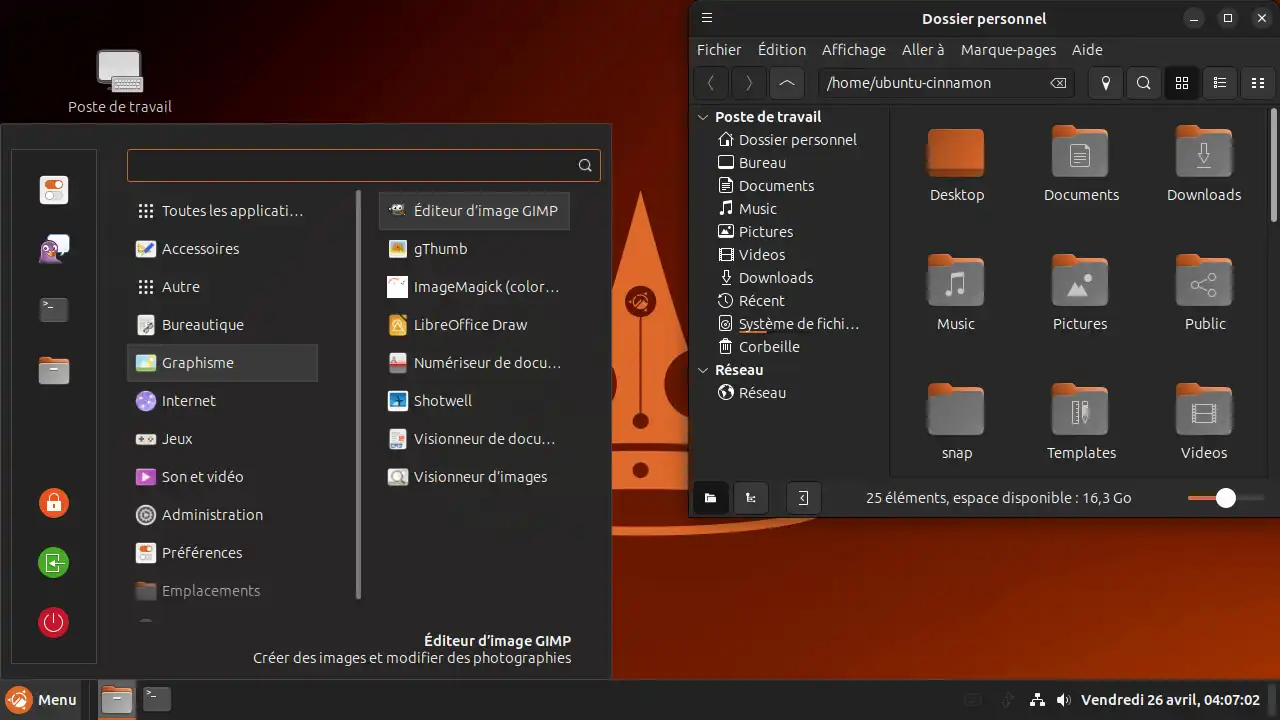
Free, customizable and optimized for long-lasting performance, Ubuntu prolongs the life of older computers while offering a modern, fluid and productive environment. Today, it’s one of the world’s most popular Linux distributions, adopted by home users and professionals alike.
Ubuntu is suitable for beginners and advanced users alike
Its intuitive graphical interface makes it easy for anyone, even those with no computer experience, to navigate, install software or manage files. Updates are automated, hardware drivers are natively managed, and software installation is just a few clicks away via a software library.
For more experienced users, Ubuntu offers a robust Debian base, full terminal access, compatibility with modern development tools (Docker, Git, Python) and great system configuration flexibility. It’s a stable, secure and customizable work environment that adapts to all profiles for personal or professional use.
Ubuntu: A free OS with all the tools for working, browsing and more
Ubuntu is a complete alternative to Windows, designed to offer everything a user needs on a day-to-day basis. On installation, the system integrates a suite of essential software: web browser, office suite, media player, file manager, system tools… everything is ready to use. No need to search for or install programs to work, browse, watch videos or manage documents.
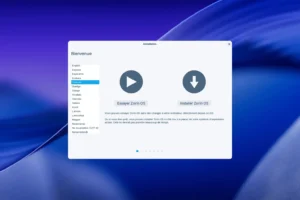
LibreOffice on Ubuntu: the free alternative to Microsoft Office
LibreOffice is the office suite installed by default on Ubuntu, designed to offer a complete alternative to Microsoft Office. It lets you write documents, create spreadsheets, design presentations and manage databases, all in a 100% free environment with no paid licenses. For users coming from Windows, LibreOffice offers a seamless transition thanks to its compatibility with Word, Excel and PowerPoint formats.
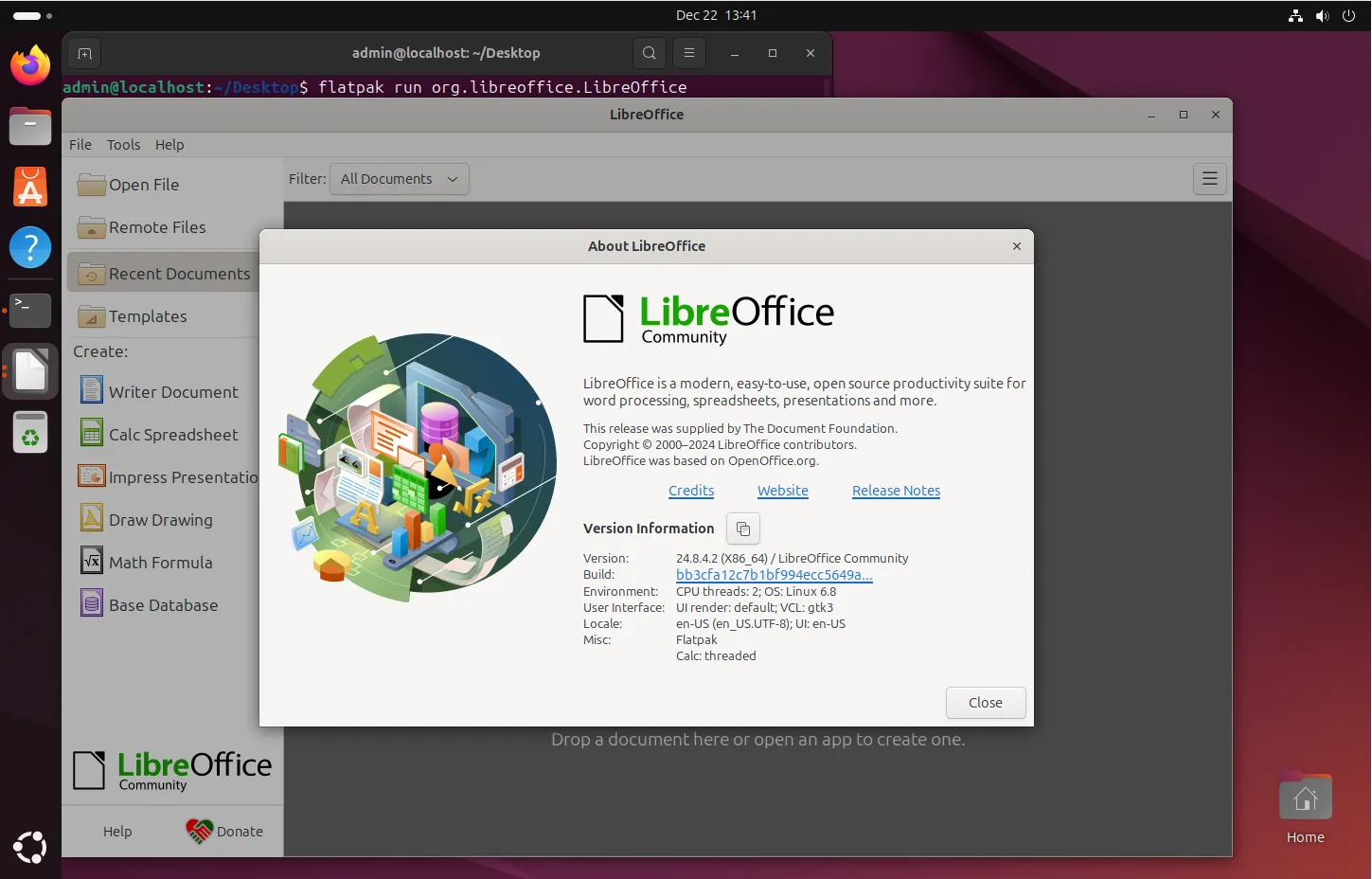
Integrated natively into Ubuntu, it is one of the tools that make this system immediately functional after installation, without the need to search for or add third-party software. Whether you need to work, study or manage your personal documents, LibreOffice meets all your everyday needs, while respecting your privacy and relying on an active, transparent community.
Firefox: Ubuntu’s default browser
Firefox is the default web browser on Ubuntu, ready to use as soon as the system boots up. It offers a modern, fast and secure browsing experience, with no ad tracking or abusive data collection. Unlike Chrome or Edge, Firefox is an open source project supported by the Mozilla Foundation, which guarantees total transparency in its operation and strict respect for privacy.
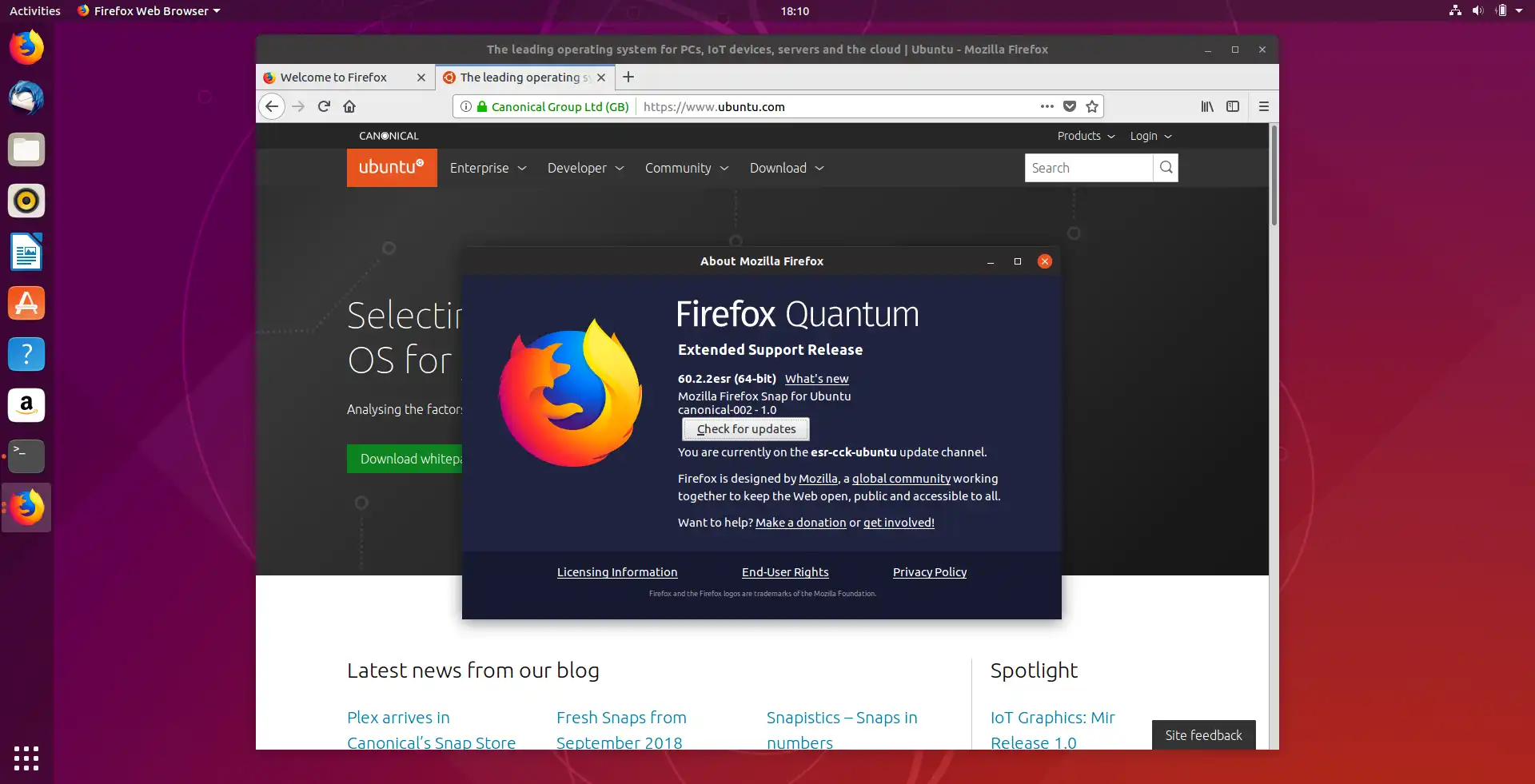
Using Ubuntu with Firefox means replacing the Microsoft or Google ecosystem with a free, complete and independent solution. The browser includes all the features you’d expect: tab management, data synchronization, extensions, developer tools and an integrated tracker blocker. And for those who prefer the Google Chrome environment, Chromium, its free version, is also available and can be installed in just a few clicks from the official Ubuntu repositories.
Thunderbird on Ubuntu: the free alternative to Outlook
Thunderbird is the free e-mail client included by default with Ubuntu, designed to replace Outlook or Mail on Windows. It lets you manage multiple e-mail accounts (IMAP, POP, Exchange), send and receive messages, organize folders, synchronize calendars and even add extensions to enhance its functionality. Its clear interface and offline operation make it a reliable tool for both personal and professional use.
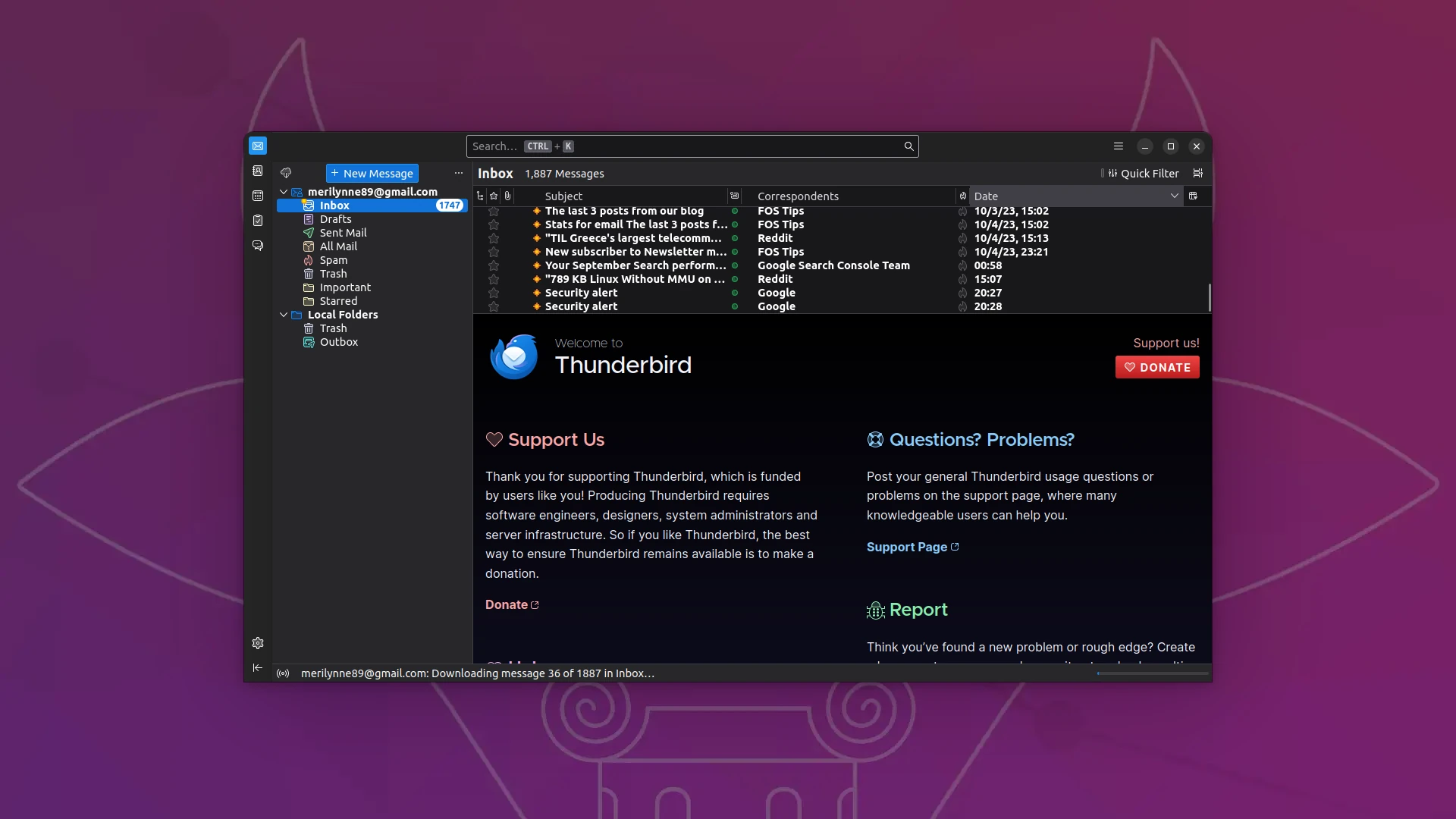
When you migrate to Ubuntu, there’s no need to search for a solution for your e-mail: Thunderbird is ready to use right out of the box. It supports all the major messaging services (Gmail, Outlook, Yahoo), offers integrated spam filtering, fine-tuned attachment management and native message encryption. And for those who want to stay within the Google universe, it even lets you synchronize your contacts and calendar. In short, a complete, subscription- and advertising-free solution.
Discover also the best alternatives to Outlook to replace your mail software.
Wine: run your Windows business applications on Ubuntu
When professional software only exists for Windows and no Linux or web alternative is available, Ubuntu remains a viable option, thanks to Wine. This tool lets you run certain Windows software directly under Ubuntu, without the need for a virtual machine or reboot. It’s particularly useful for older or proprietary business applications that are still essential for everyday use, but for which the publisher has never offered a Linux version.
Wine acts as a technical gateway: it recreates an environment compatible with many Windows programs, enabling you to retain critical tools while benefiting from the stability and security of Ubuntu. To simplify its use, interfaces such as Bottles or PlayOnLinux make it easy to configure each software in an isolated environment. It’s a transitional solution for professionals who want to switch to Linux without losing access to their usual tools.
Find out how to install Windows 11 on a non-compatible PC.
Switch to Ubuntu without changing your work habits
For classic office or professional use, Ubuntu lets you switch to Linux without changing your habits. Browsing the Internet, writing documents, sending e-mails, organizing your diary or even consulting Office files: it all works immediately, without the need for a license or additional costs.
And in the rare cases where Windows software is still essential, solutions like Wine let you keep it without giving up the advantages of Ubuntu. As long as your business doesn’t depend on a highly Windows-specific tool, it’s perfectly possible to migrate to Linux without losing efficiency.
